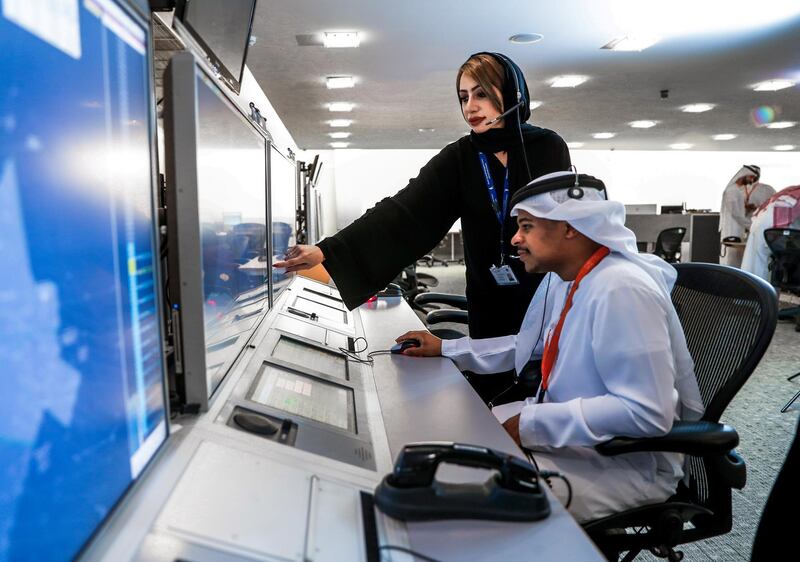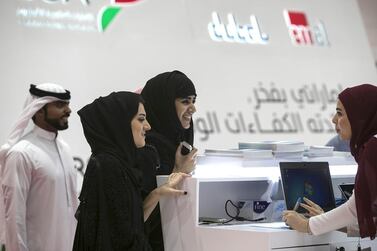The hiring of UAE nationals increased over the past six months due to a rise in demand from both public and private sector organisations, according to global recruitment agency Hays.
“The competition for top Emirati talent is the highest it has ever been,” said Bridget Connolly, senior business manager of Emiratisation at Hays, in a statement.
The agency, which has offices in Abu Dhabi and Dubai, has a database of more than 4,000 UAE national candidates and over 350 UAE national jobs.
In March, the Ministry of Human Resources and Emiratisation said it planned to create 30,000 job opportunities for Emiratis in the private sector this year. Emiratisation efforts — such as employment open days, the Tamkeen training programme and collaboration with private sector companies — provided 20,225 job opportunities that benefited 11,700 nationals last year, according to the ministry.
While a focus on hiring for government entities still continues, Ms Connolly said “we are now also seeing implementation of Emiratisation initiatives in support of Abu Dhabi Vision 2030 across a larger range of privately-owned organisations, throughout multiple industry sectors”.
One of the key goals of Abu Dhabi's Economic Vision 2030 is increased participation of nationals in the workforce, especially in the private sector.
Based on enquiries from clients looking to hire UAE nationals and speaking to Emirati working professionals, Hays found three core "pull factors" attracting candidates to employers: learning and development opportunities, organisation culture and employer brand.
Learning and development opportunities and initiatives are important to Emirati candidates looking for long-term careers with employers that offer clear progression plans. Hays cited Etihad and Emirates as examples of employers that have long supported Emiratisation with dedicated development schemes. Digital skills training is also required to make sure Emiratis receive relevant skills.
Organisation culture includes a work-life balance, which is “an important factor for Emirati professionals when considering an employer as many have very strong family ties and commitments outside of work”, Ms Connolly said.
As for employer brand, “Emirati candidates are very brand-conscious, keen to work for employers who have strong brand integrity and reputation in the local market”, she said.
It is also important that employers go through the hiring process as efficiently and professionally as possible. “We have seen on too many occasions employers lose candidates due to the hiring process taking weeks or months longer than anticipated, resulting in a lack of trust in the organisation and loss of interest in the role,” said Ms Connolly.
Some challenges remain due to a skills shortage within technical engineering, digital marketing and communications, finance and human resources roles, according to Hays.
“The good news for employers is that there is a growing number of skilled Emirati candidates in the market who are willing to work in both public and private sector organisations and whose salary expectations are becoming more aligned to that of expatriate workers,” Ms Connolly said.








